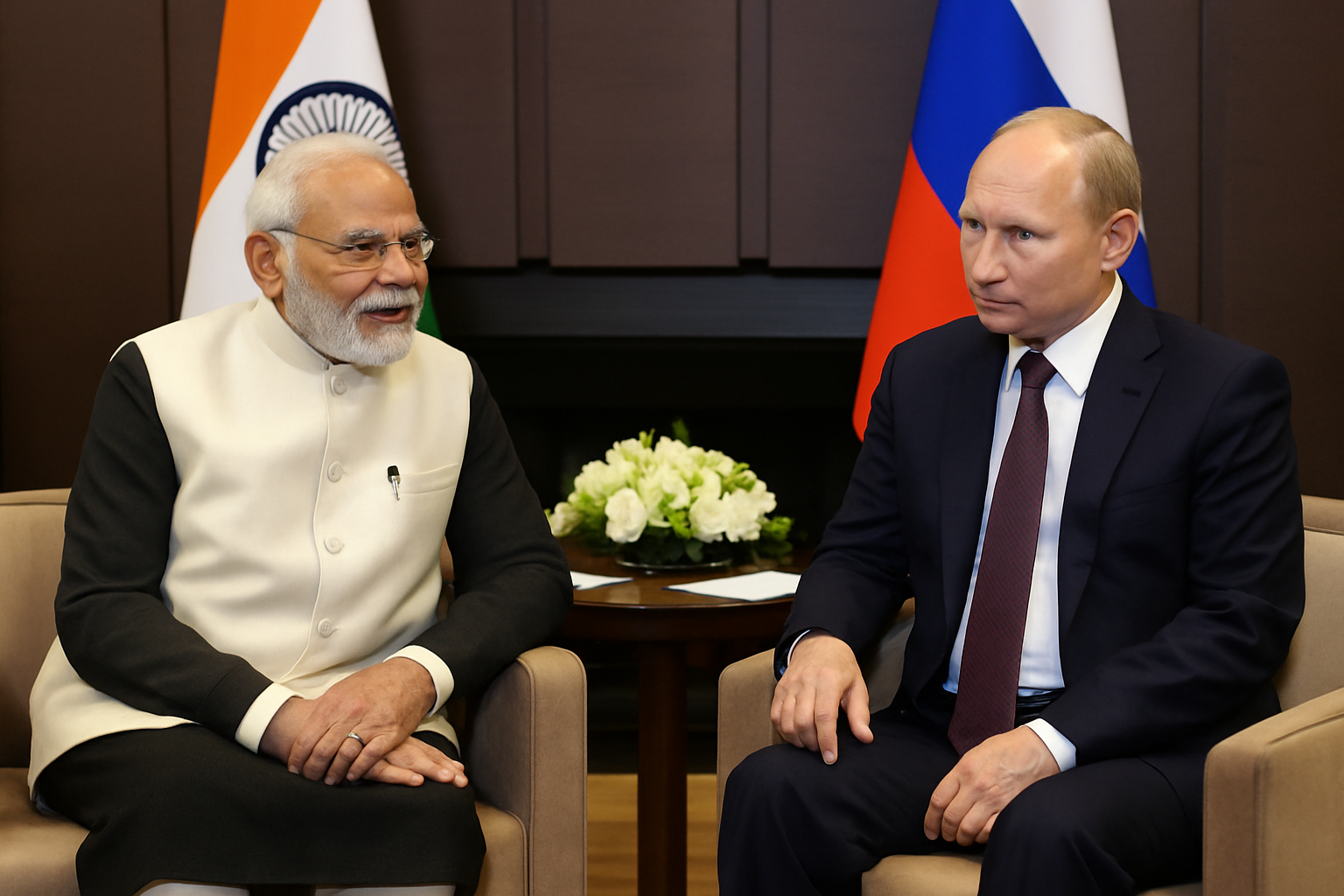Russian President Vladimir Putin is expected to visit India later this year, marking a significant moment in New Delhi’s balancing act between its strategic partners.
The announcement, made by National Security Adviser Ajit Doval on August 7 during his Moscow trip, emphasises the resilience of India-Russia relations despite mounting US pressure over energy trade. While exact dates remain unconfirmed, Russian news agency Interfax has suggested the visit is likely before year’s end.
What is the geopolitical significance of Putin’s visit to India?
The timing of Putin’s planned visit is geopolitically charged. Just a day earlier, US President Donald Trump escalated tensions by signing an executive order imposing an additional 25 per cent tariff on Indian imports.
His move follows repeated accusations that India is indirectly supporting Russia’s war in Ukraine, now in its fourth year, by purchasing large quantities of Russian crude oil. Trump has also threatened secondary tariffs on any Russian oil buyers unless Moscow halts hostilities in Ukraine by Friday, setting an unusually tight ultimatum.
What are the strategic and economic stakes in India-Russia trade?
India and Russia have enjoyed decades of cooperation, rooted in Soviet-era strategic ties. Economic relations have grown steadily, particularly in energy. Since the Ukraine war began, India has emerged as one of the largest buyers of discounted Russian crude, importing over two million barrels a day by mid-2023, nearly 45 percent of its total crude requirement.
From New Delhi’s perspective, Russian oil purchases are driven by economic pragmatism and energy security needs, not by geopolitical alignment with Moscow. However, Washington sees these imports as a key lifeline for the Russian economy, undermining Western sanctions.
Putin’s visit could therefore serve as both a symbolic reaffirmation of the Indo-Russian strategic partnership and a test of India’s diplomatic finesse. Balancing a trusted defence and energy partner in Moscow with the economic and technological leverage of Washington will be central to New Delhi’s foreign policy calculus.
What could be the ripple effect of Trump-Putin diplomacy?
Adding another layer to the unfolding narrative, the Kremlin confirmed that Putin is also preparing to meet Trump in the coming days. Kremlin aide Yuri Ushakov said a venue has been agreed upon, with the summit targeted for next week, though details remain under wraps.
While the White House has floated the idea of including Ukrainian President Volodymyr Zelenskyy, Putin has dismissed such prospects, sticking to his demand for a settlement on Russia’s terms.
This potential Trump-Putin engagement could influence the strategic environment surrounding Putin’s India trip. If talks yield even a limited pause in hostilities, US pressure on India might ease. Conversely, a failure, or perceived stalling tactic, could deepen the standoff, pushing New Delhi to double down on its Moscow ties despite tariff pain.
What are the high stakes on the road ahead?
For India, Putin’s upcoming visit will be more than a ceremonial exchange; it will be a litmus test of strategic autonomy. As Washington ratchets up economic penalties, New Delhi’s challenge will be to safeguard its energy security and long-standing defence cooperation with Russia, without triggering a lasting rupture with the United States.
In a geopolitical climate where every move is under scrutiny, the Putin visit — set against the backdrop of Trump’s tariff offensive — could shape India’s foreign policy trajectory for years to come.
